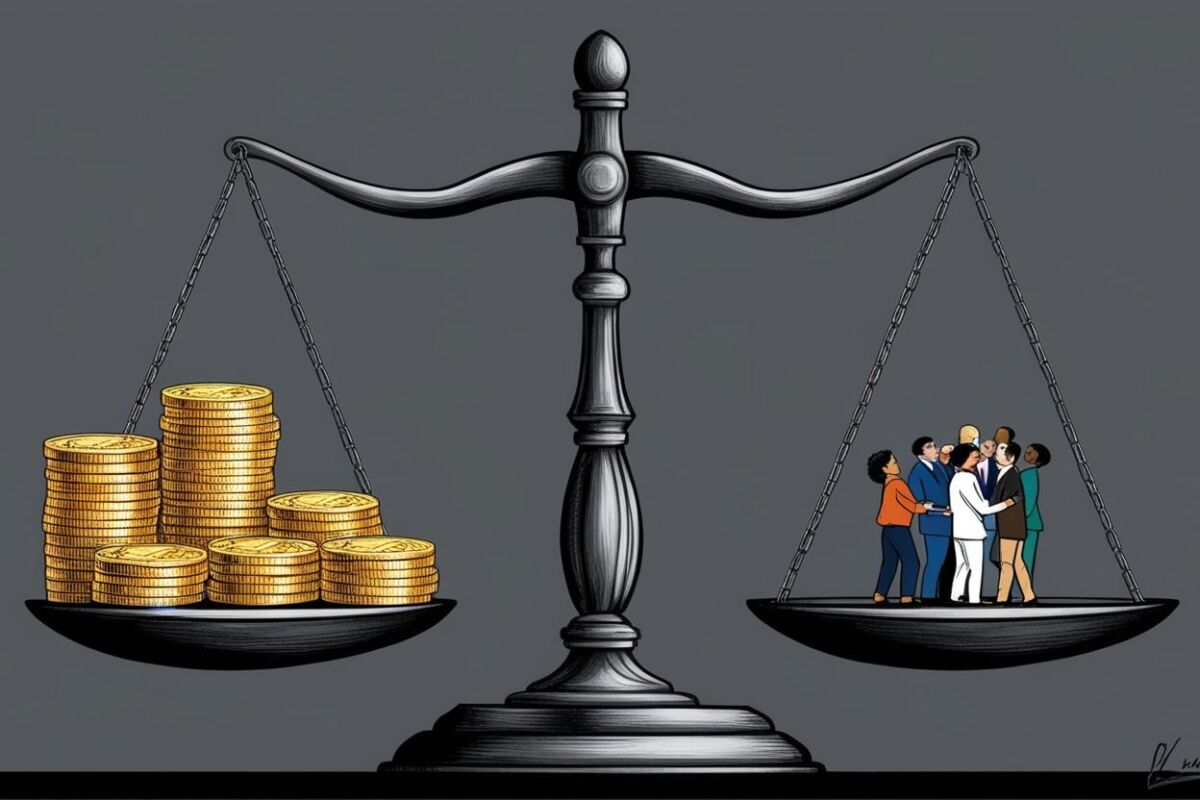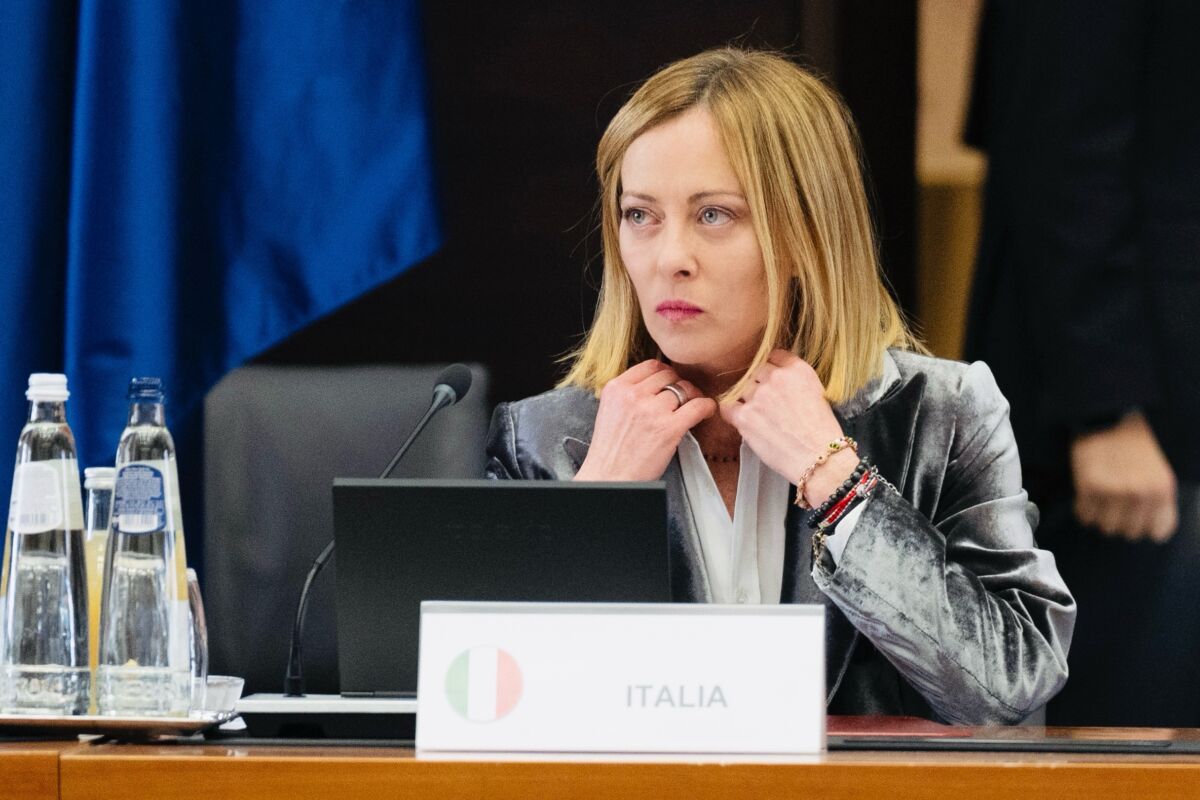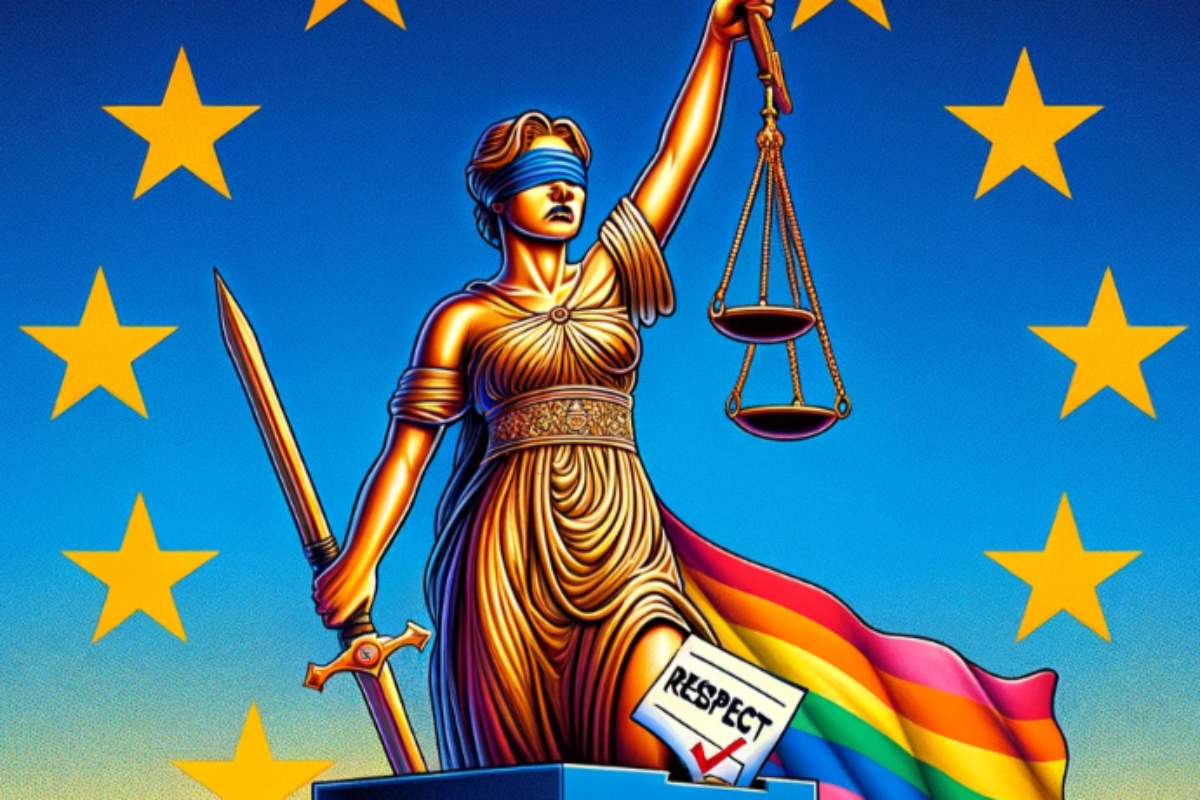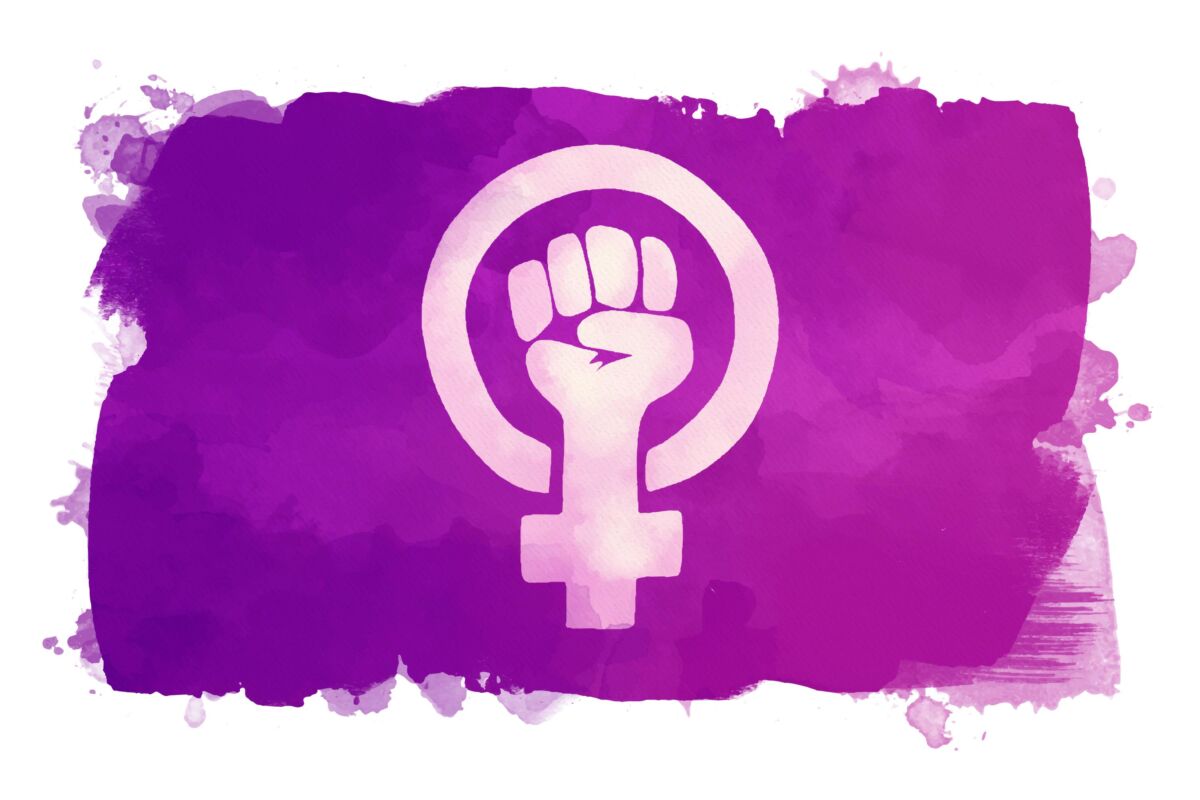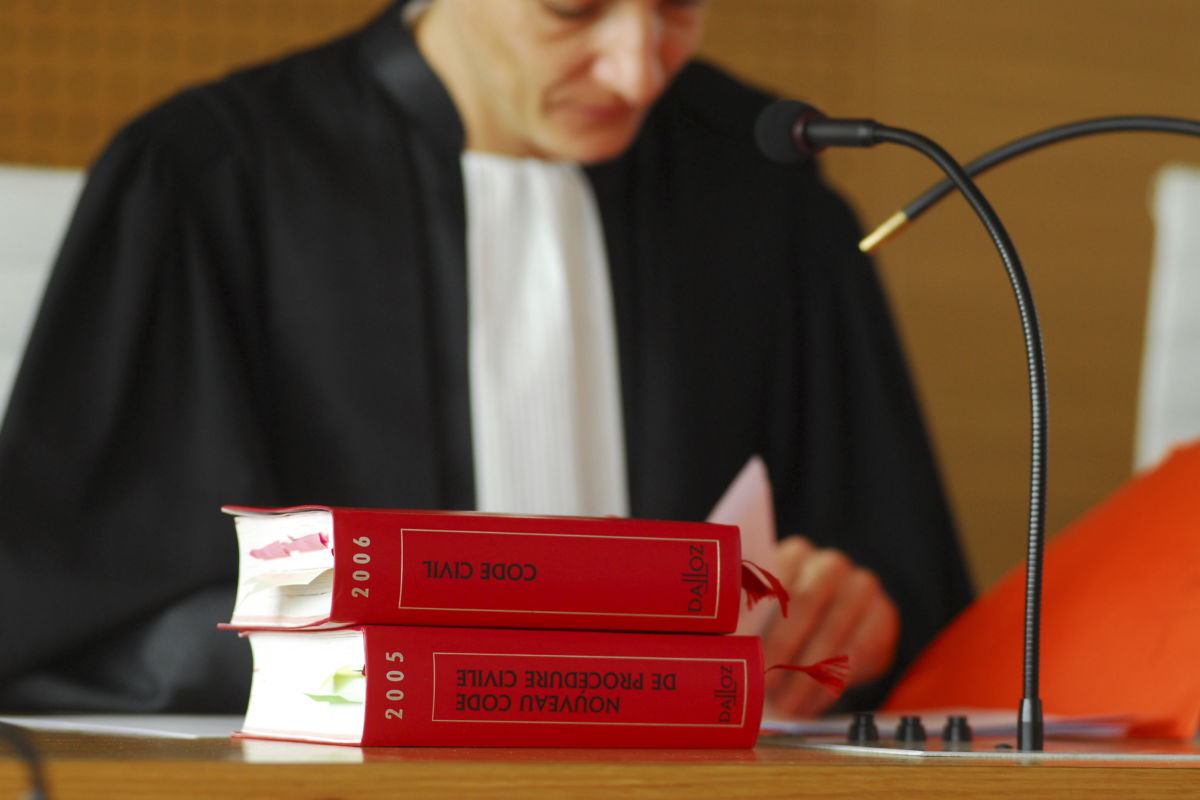It’s a common misconception that institutional ‘ethics’ is a question of morality. Believing that ethical misconduct – such as conflicts of interest – is a ‘necessary’ trade-off inherent to a functioning political system is just as misguided.
The reason why we need to urge a sweeping reform of ethical oversight isn’t because of some moral high ground but because the lack of accountability at the political level chips away at the democratic power that’s supposed to rest with the people.
So, you think you live in a democracy
Unlike inherently subjective morality, the democratic rule of law offers an objective basis for stricter ethical rules for EU decision-makers. A rule of law-based system presupposes that lawmakers, government officials and the entire public administration, which exercise decision-making authority on behalf of the people, are all public servants.
Democracy is a fragile thing that can go awry easily, especially when those in the driver’s seat fail to represent the public’s interests and only pursue their own. Without accountability, political figures evade their responsibility of public service, disrupting the rule of law’s delicate equilibrium.
Strict, enforceable ethical rules can deliver more accountability. They not only keep those with power in line but reinforces the fundamental principle that the people are a check on sovereign authority.
Trust me, I’m a politician!
Though there are accountability mechanisms in place for the EU’s institutional members – MEPs, Commissioners and the like – oversight is done by multiple, largely non-independent players. This creates an extremely complicated, inefficient ‘patchwork’ that lacks centralised and uniform enforcement.
There’s quite a selection of recent scandals in the EU institutions to sample, all of them showcasing public servants as pursuing their own self-interests, blatantly disregarding ethical rules and dodging accountability. From the biggest foreign ‘cash-for-influence’ affair in recent memory, through illicit text messages about multi-billion euro vaccine deals, severe conflicts of interests and innovative lottery-based corruption, we’ve had it all.
Responding to calls for better ethical oversight, the Commission unveiled a new inter-institutional ethics body – having the blessing of all institutions except the Council’s – which will be supported by experts and develop ‘recommended’ but not mandatory common standards. This solution, however, is not a winner, as non-binding recommendations simply won’t be enforced or uniformly implemented and it won’t have the power to sanction violations.
With one more player on a crowded field, the issue of fragmentation will remain, alongside a lack of serious consequences for ethics violations.
Bark AND bite – the case for a new watchdog
Any new blueprint needs that one thing we don’t have much of – political will. But not pushing for change and accountability is worse because complacency means relinquishing popular democratic power.
That’s why the EU leadership’s must see through the chaos and reorganise the oversight team around three players: the European Public Prosecutor’s Office (EPPO), the Court of Justice (CJEU) and a shiny new addition to the line-up, namely a structurally independent ethics authority.
Essentially, this ethics authority would integrate current players like the European Commission’s anti-fraud body (OLAF), the different institutions’ various internal enforcement units and ethics committees, as well as the expert-led structure of the ethics body. As the authority would resemble a beefed-up version of the Ombudsman’s Office, it should be helmed by the Ombudsman. Such an arrangement would bring together all rulemaking, investigative, executive and sanctioning functions under one roof, allowing for streamlined, coherent cooperation while maintaining a clear division of labour.
Beyond unifying entities, the authority should be given considerable power. It must be fully independent from the other EU institutions. It should have the competence to develop common, uniform and – most importantly – binding ethical rules, including mandatory guidelines for selecting high-ranking political appointees and advisors.
In the same vein, the authority should also oversee lobbying activities, including maintenance of the Transparency Register and harmonising interest representation rules for the Commission, the Parliament and the Council – with the inclusion of Permanent Representatives in the latter.
Bolstering integrity requires stringent disclosure rules: for all institutional members, the comprehensive reporting of financial interests, detailed meeting records and public declarations of conflicts of interest should be obligatory. At the same time, remunerated activities outside the institutions, alongside gifts or other monetary contributions from external actors, must be banned for all members.
Through its investigative competences, the authority would follow up on allegations of ethical and financial misconduct. By centralising the currently fragmented enforcement mechanism, consistency in ethical oversight across all institutions would then become a real possibility.
Violations – including fraud, maladministration or other breaches – would be proportionately sanctioned by the authority, with the possibility of being heard by the General Court. For cases where there’s suspicion of criminal misconduct would be referred to the EPPO and subsequently, the CJEU. The EPPO should maintain its authority to investigate EU budget abuses by the Member States.
Fit for Article 2
The easiest way to shut down any proposal for change is by either claiming that there’s no legal basis in the Treaties or by referring to a chronic lack of political will.
Concerning the first – while there isn’t an explicit Treaty provision outlining such an arrangement, neither is there one for the current lame duck ethics body. Yet the Commission has been very creative about finding the legal basis for a raft of draft legislation, provided there was significant political momentum.
There’s always the possibility to conclude an agreement between the various institutions of Article 13(1) TEU to deliver on other Treaty obligations. Here, they have the biggest obligation of all to fall back on – Article 2 TEU.
In the most fundamental ways, the EU is bound by the requirement to establish a system based on the democratic rule of law, pursue policies to advance it and, as the TEU declares, enhance the ‘democratic and efficient functioning of the institutions’. Thus, delivering democratic accountability wouldn’t just be a courtesy – it would be enforcing Article 2 and the most basic principles of EU integration.
Some legal creativity, based on Article 2 and its manifestations across the Treaties, and the Charter of Fundamental Rights, plus some meaningful commitment, would equal a degree of institutional accountability that is beyond reproach.
As for the second counterargument? It’s self-evident that people who benefit from a relaxed ethics regime without tangible consequences would not back a reform that would make their lives more difficult. But this is where democracy makes its entrance. If public servants shy away from being held accountable by the public, citizens can demand better administration, force their hand and ‘encourage’ a more open-minded approach to better ethics.
Insisting on accountability is the only way to remind the political level that they must listen to the citizens they serve. And to demand political action from representatives, we, the people, also need to find the political will within us.
This CEPS Expert Commentary is part of a special series being published prior to the CEPS Ideas Lab on 3-4 March 2025 to showcase some of the most innovative ideas we’ll be rigorously debating with our participants. More info can be found on the official Ideas Lab 2025 website.



